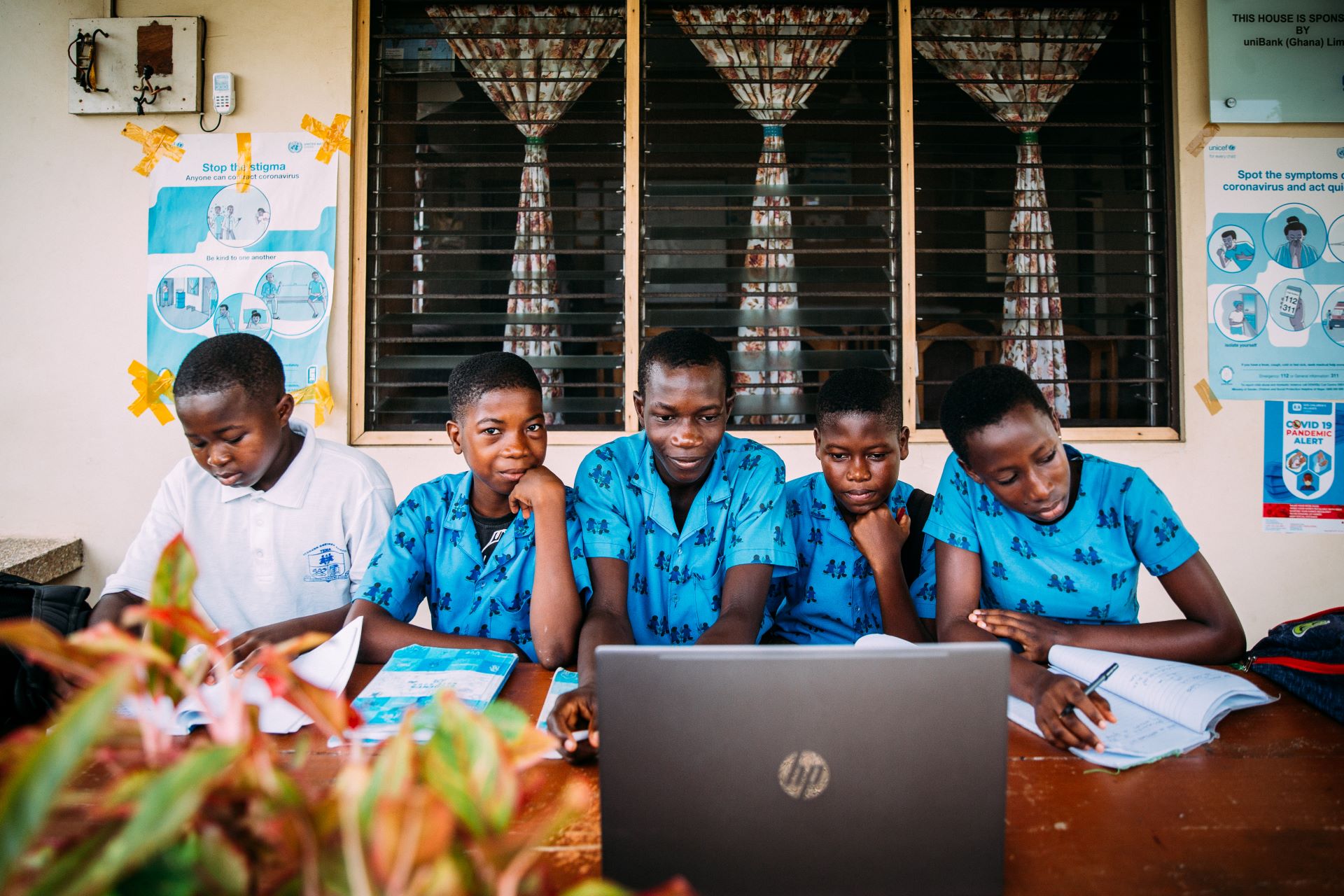The coronavirus pandemic has swept the world. But the effect it has had on education may be considered a pandemic in its own right. In January 2021 UNESCO reported that over 800 million children still faced disruption to their education. As children missed out on key learning time, UNESCO warned of the impact on vulnerable and marginalised children.
The digital divide refers to the unequal access people have to digital technology. The pandemic has forced many schools to move their learning online. The digital divide meant that those without access to computers or the internet could no longer “attend” school. In Ghana for example, lack of access meant most state-run schools had to cancel classes completely instead of moving to digital learning.
But this was not the case at the Hermann Gmeiner school in Tema. The teacher’s dedication and fast response allowed classes to continue, with children participating at home and the teachers in the classroom. Aware of the digital divide, the school adopted both digital and non-digital alternatives.
The children in the SOS Children’s Village Tema have been home-schooling since the coronavirus lockdown began in March 2020. For safety, the children in the SOS village have not left the site throughout the pandemic. To prevent them from falling behind in school, it was important that they started lessons again as soon as possible. Online classes got their education back on track. Returning some structure to their days was a priority, so as well as online classes, the students would also wear their school uniforms.
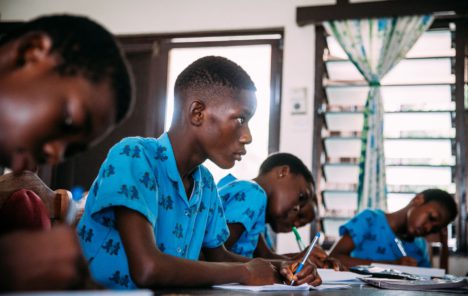
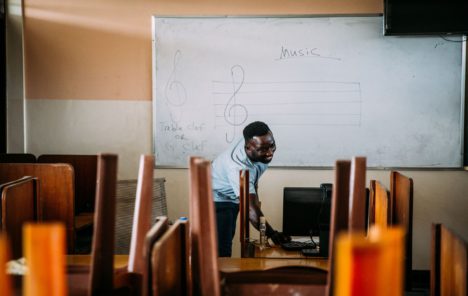
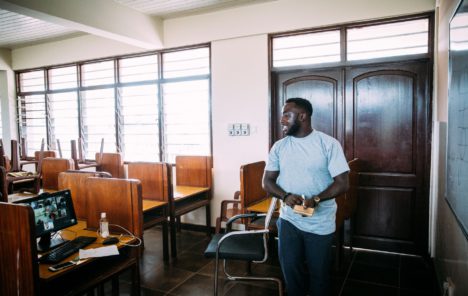
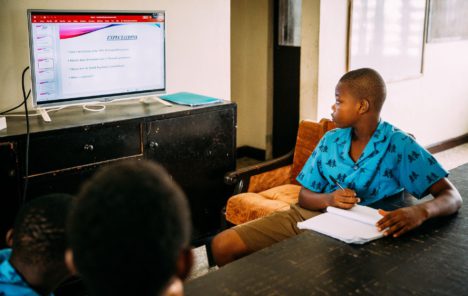
The true success of this school, however, is in its response to those students who don’t have access to technology. Children who attend the Herman Gmeiner School but do not live in the village could also attend classes from home. Although they don’t all have access to the internet, the school have set up a drop off system. Once a week the parents can come to the school to pick up the class work for the week and drop off any homework from the previous week. In addition to this, parents can call the teachers at any time throughout the week with queries and questions.
Education is essential to overcoming poverty and breaking the poverty cycle. Therefore, access to education, digital or otherwise, is essential for all children.
